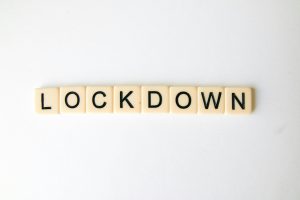The NSPCC is calling for an end to physical punishment of children in Northern Ireland – urging political parties and the public to support giving children the same protection in law against assault as adults.
At an event at Stormont today, the children’s charity will be joined by co-sponsors Michelle Guy MLA, Danny Baker MLA and Claire Sugden MLA, and peers across the statutory and voluntary sector, and will set out the reasons as to why physical punishment of children is harmful and outdated. The NSPCC will call for legal reform to protect children and young people from any form of physical harm.
As it stands, the defence of “reasonable chastisement” allows parents and carers to argue in court that it was reasonable to use force against their child.
Almost 70 countries around the world, including Wales, Scotland and the Republic of Ireland, have put measures in place to protect children from harm, but the current defence of “reasonable chastisement” means children in Northern Ireland are not fully protected from physical punishment.
The children’s charity is proposing this change is made through the Justice Bill currently passing through the Assembly. They argue this would give clarity in the law, and children in Northern Ireland the same protection from assault as their counterparts in other parts of the UK and Ireland.
NSPCC research from 2022 revealed that in Northern Ireland, almost two thirds (65%) of adults supported a change in the law to protect children from being physically punished by their parents and carers. Among parents, carers and guardians the support rose to 71%. The survey of over 1000 members of the public also found that only 14% of adults and 8% of parents considered physical punishment an acceptable form of discipline.
There is also ever-growing evidence that physical punishment is not an effective form of discipline and can actually be harmful to children.
A 2021 narrative review published by the Lancet showed that physical punishment was not linked with any positive outcomes and was actually shown to increase children’s behavioural problems over time. A recent Royal College of Paediatrics and Child Health (RCPCH) report has also shown that children who experience physical punishment are 2.3 times more likely to be physically abused.
With this evidence and rising public support for equal protection of children, the NSPCC believes that now is the time to change this outdated law, which is lagging behind public attitudes.
The charity is also calling for any change in the law to be accompanied by improved support for parents and carers so they can manage their children’s behaviour more effectively.
Caroline Cunningham, Policy and Public Affairs Manager for NSPCC Northern Ireland, said: “Today marks a crucial juncture in keeping children safer across Northern Ireland. We are grateful to everyone across the statutory, community and political sectors who are attending to listen to our goal to end physical punishment of children and young people.
“We will hear today about the positive experience since legal change in Wales. We also need effective and improved support for parents and carers to manage their children’s behaviour more positively.
“We urge our political parties in Northern Ireland to unite in giving children the protection they deserve. There is a clear message from the public with a majority view that physical punishment should not be part of anyone’s childhood.
“It is time to change the law to allow children in Northern Ireland a childhood free of physical harm in any form.”
Alliance Education spokesperson Michelle Guy MLA said: “In order to protect children, who are one of the most vulnerable groups in our society, we must offer them the same legal protection against physical assault as everyone else.
“Professionals working directly with children are clear when they tell us that we must close this legal loophole that means children do not have the same protection in law from assault as adults do.
“That’s why I have tabled an amendment to the Justice Bill that will give children equal protection. This amendment will not introduce any new offence, it is simply about providing clarity in the law, which is very much needed.”
Consultant Paediatrician, Dr Julie-Ann Maney, said: “We know that physical punishment has negative consequences for children’s physical and mental health and wellbeing as well as their social, emotional and behavioural outcomes.
“The lack of clarity around the current laws in Northern Ireland makes it extremely challenging for paediatricians to talk to families about physical punishment. This ambiguity not only undermines conversations about children’s rights, wellbeing and safety, but also hinders clinicians from confidently advocating for the best interests of the child.
“Where available evidence exists, it suggests that in jurisdictions where equal protection has been implemented, the most common intervention in response to referrals has been parenting support – crucially this provides a juncture to identify potential abuse or support families to help children thrive.
“A legal change is necessary to provide clarity and encourage the best outcomes for children. We need to give children here legal protection from assault, and all its associated harms. They deserve this as much as the children in the 68 other countries, including Scotland, Wales and the Republic of Ireland who have already implemented this vital legislation.”
NSPCC is urging members of the public to support equal protection for every childhood through a change in the law by signing the petition via our website at End physical punishment | NSPCC
For more information on positive parenting, including ways to set clear and consistent boundaries, visit Support for parents | NSPCC
The NSPCC Helpline is available on 0808 800 5000 or at help@nspcc.org.uk to advise anyone who has concerns about a child.



